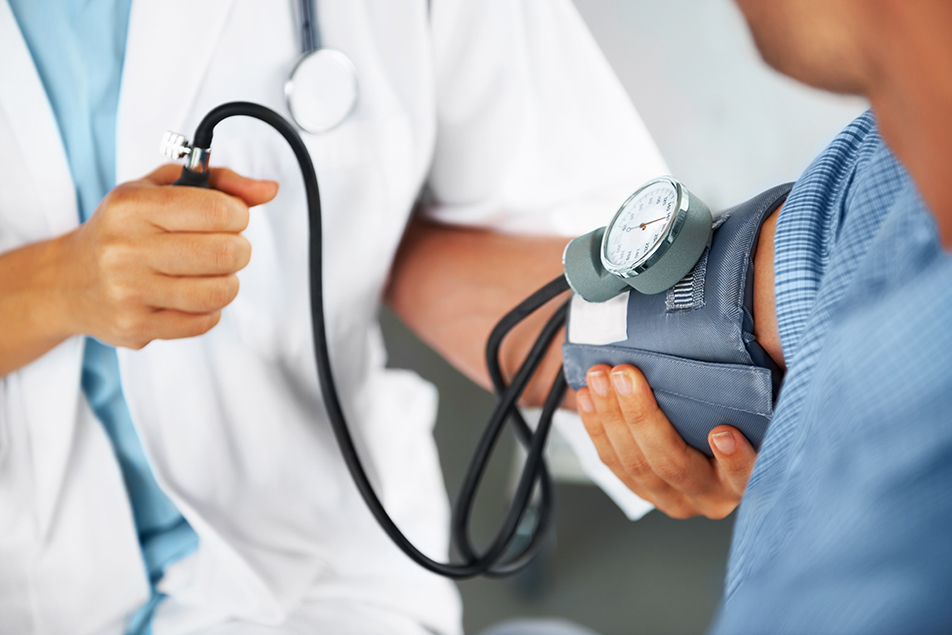
This post was written by Kevin Baumgartner, PharmD, Pharmacy.
Over-the-counter (OTC) medications are commonly used to treat a variety of conditions, including headaches, colds and general pain. However, some OTC medications can potentially raise blood pressure, which can be dangerous for those who already have high blood pressure or are at risk for developing it. Keeping your blood pressure controlled supports heart health, so it’s important to be familiar with the readily available medications that could elevate it.
Decongestants
One group of OTC medications that can raise blood pressure is decongestants. These medications are often found in cold and flu remedies and are used to relieve nasal congestion. They work by making the blood vessels smaller, which can increase blood pressure.
Common decongestants include pseudoephedrine (Sudafed®) and phenylephrine (neo-synephrine). Pseudoephedrine must be requested from behind the counter at the pharmacy, while phenylephrine is very common in combination cold and flu medications. While these options are effective, they should be used carefully by people who have uncontrolled high blood pressure. Try to use these medications at the lowest dose and for the shortest amount of time possible.
Pain relievers
Another group of OTC medications that can raise blood pressure is pain relievers. Nonsteroidal anti-inflammatory drugs (NSAIDs), such as ibuprofen (Motrin®, Advil®) and naproxen (Aleve®), can raise blood pressure by reducing the blood vessels’ ability to expand. The risk of this becomes greater if you take these medications on a regular or prolonged basis. Acetaminophen (Tylenol®), which is found in many OTC cold medications, is less likely to raise blood pressure.
Herbal supplements
Certain herbal supplements, such as licorice root, guarana and yohimbe, can also raise blood pressure. These supplements can have similar effects to decongestants and pain relievers, by tightening blood vessels and increasing blood pressure.
The takeaway
It’s important for those with high blood pressure or who are at risk for developing it to be aware of the potential risks and side effects of any OTC medications or supplements they are taking. If you fall into this category, be sure to read the labels and speak to your healthcare provider before taking any OTC medications or supplements and be sure to let your healthcare provider know about all supplements and medications you are already taking.
Even those who have a healthy blood pressure should be aware that these medications might raise their blood pressure, so taking these medications only occasionally as needed and keeping in touch with your doctor is the best way to keep your blood pressure and heart healthy while treating common illnesses and discomfort.



